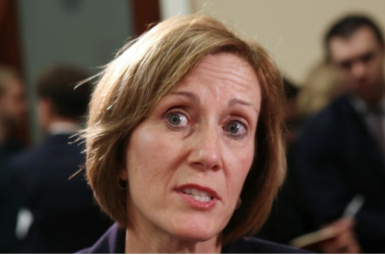MassHealth, the state’s combined Medicaid and Children’s Health Insurance Program [CHIP], provides healthcare coverage to Massachusetts’ highest need residents. MassHealth enrollees have access to doctor and hospital visits, prescription drugs, and other important healthcare services.1 The program also represents the largest category of spending in the state budget, making up 35 percent ($19.8 billion) of total state spending in Fiscal Year (FY) 2024. Prior to the pandemic, an average of 1.76 million individuals were enrolled in the MassHealth program each month.
On November 9th, Senate Bill 2499, An Act relative to pharmaceutical access, costs, and transparency was polled out of the Senate Committee on Ways and Means (SWM). Senators will have until 5pm on November 13th to file amendments to the bill, and it will be debated before the full Senate next week. The bill is a redraft of S.2492, which was reported out of the Joint Committee on Health Care Financing on October 30th. The SWM redraft includes many of the same provisions and themes as S.2492, but differs in a few notable ways.
Health and human services’ current structure does have advantages, said Doug Howgate, president of the Massachusetts Taxpayers Foundation, a nonprofit budget watchdog. The marginalized communities the office is most likely to serve tend to need assistance from several public programs at once, and they may be easier to coordinate under a single agency.
“The health needs of vulnerable populations also speaks sometimes to coordinating things under the same roof,” Howgate said.
Eileen McAnneny, president of the business-backed Massachusetts Taxpayers Foundation and a commission member, said she became aware through that work of the variation in public health services. “You can compare and contrast Boston, that has a robust public health department, to small towns in Western Mass. where they might have one public health official serving numerous towns,” she said. “And if you also look at what we expect public health officials to do, it’s everything from inspecting restaurants to looking at contaminated drinking water to smoking cessation programs.”
AS THE PRESIDENT of the Massachusetts Taxpayers Foundation, I spend a lot of time considering ways to reduce health care costs. In my opinion, the best way to reduce health care costs is not to incur them at all. A well-functioning public health system can be an effective tool for reducing healthcare costs, improving the health and extending the lives of Massachusetts residents by protecting them from a wide variety of health threats, from drinking water contamination to food poisoning and infectious disease.
“Eliminating racial and ethnic health care disparities will lead to a healthier Massachusetts, a stronger economy and clear progress toward the shared imperative of a more equitable society,” said MTF President Eileen McAnneny in a release. “This analysis provides a clear roadmap for state policymakers to build on past work by collecting and analyzing data in a more transparent manner to drive (and) accelerate measurable progress.”
To truly advance its equity goals, Massachusetts must take a leadership role in collecting and analyzing racial and ethnic health disparities, a new Massachusetts Taxpayers Foundation report suggests. The report underlines how Massachusetts must improve data collection and reporting requirements across health agencies to ensure inequities are identified and addressed more holistically.
Now, with a bill delegating how to spend nearly $4 billion in American Rescue Plan Act and state surplus funding sitting on his desk, Baker must put his signature on it quickly. He received the legislation Dec. 3 after it languished for months amid House and Senate deliberations and he has until Monday to act. It contains a desperately needed $964 million in health-care relief, according to a Massachusetts Taxpayers Foundation analysis. That’s the single largest expenditure within the bill.
A 2018 report by the Massachusetts Taxpayers Foundation estimated the cost of lost productivity in the state due to people unable to work, foregone income due to fatalities, absenteeism and "presenteeism," and excess health care costs at nearly $10 billion. That's on top of the $5.5 billion cost of opioid programs and direct services statewide.
Letter from Eileen McAnneny to State Senators Cindy Friedman and Ann-Margaret Ferrante, Chair and Vice Chair of the Joint Committee on Health Care Financing, in support of public health investment of ARPA funds.








